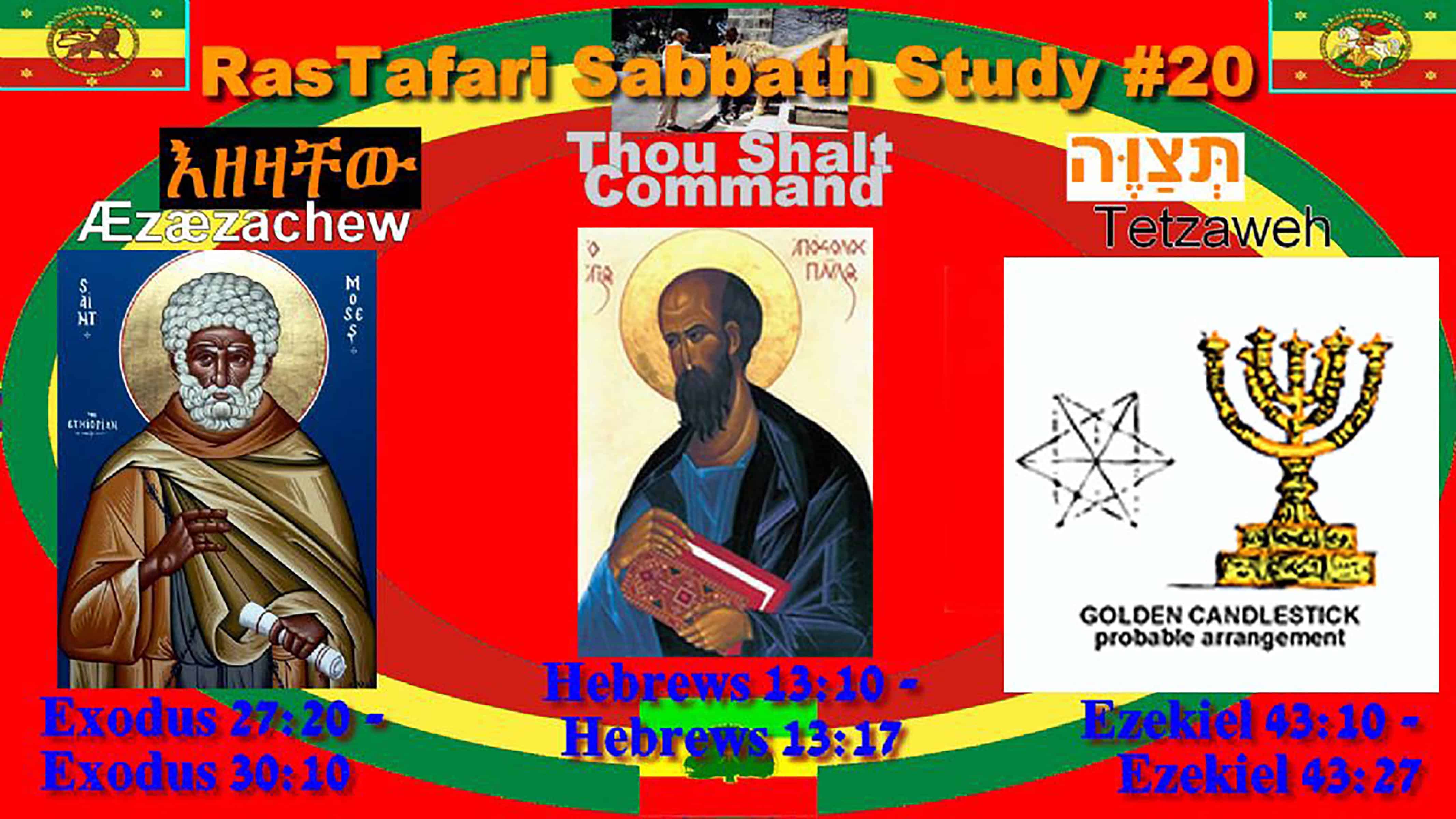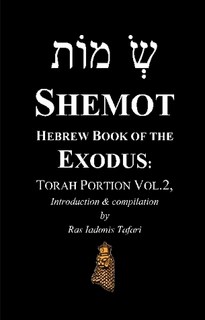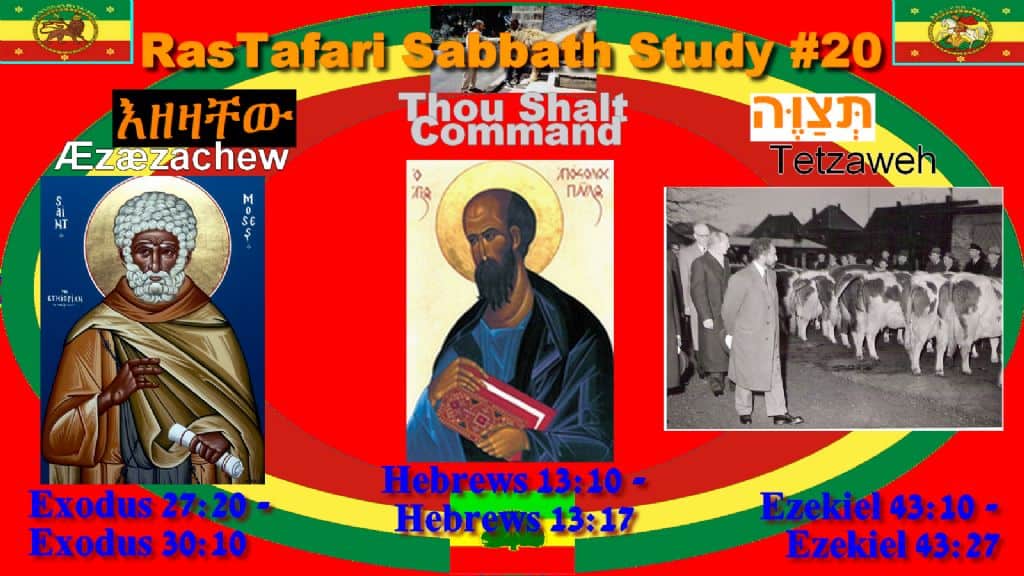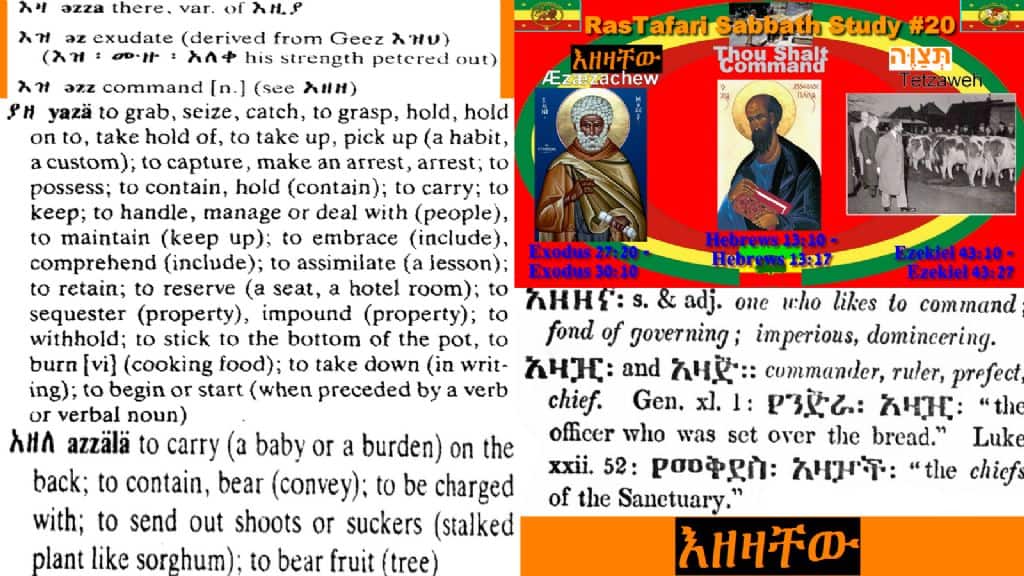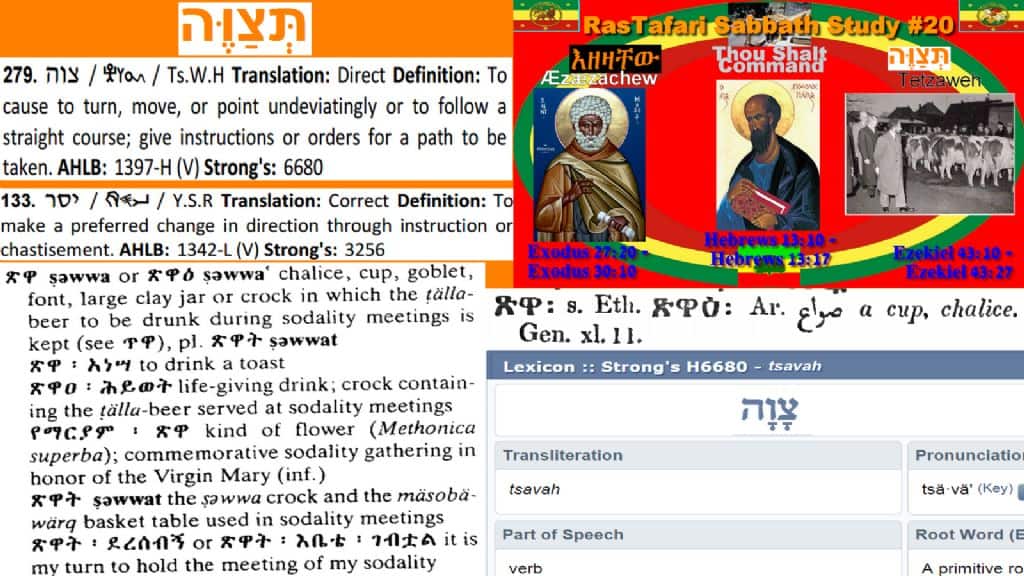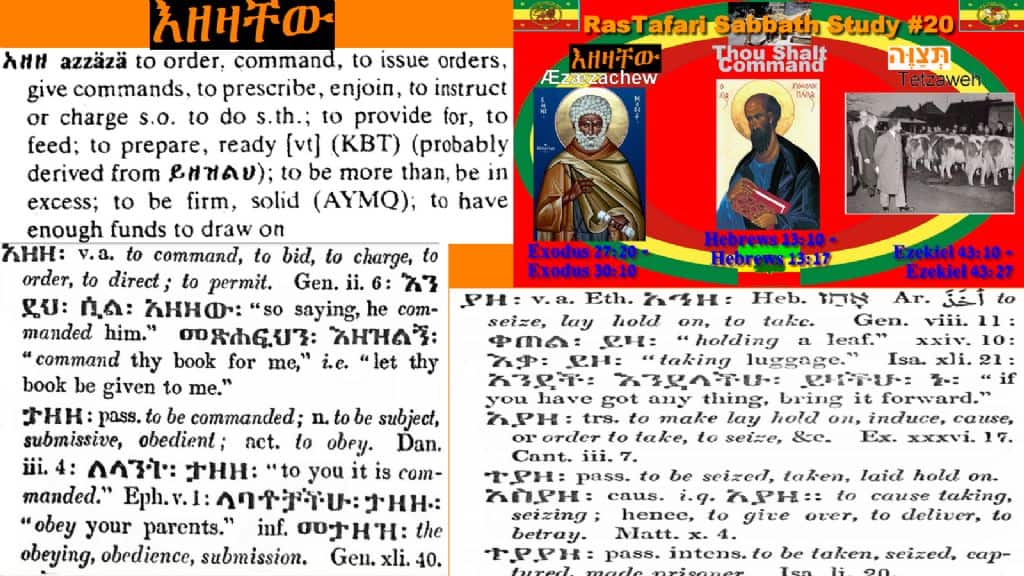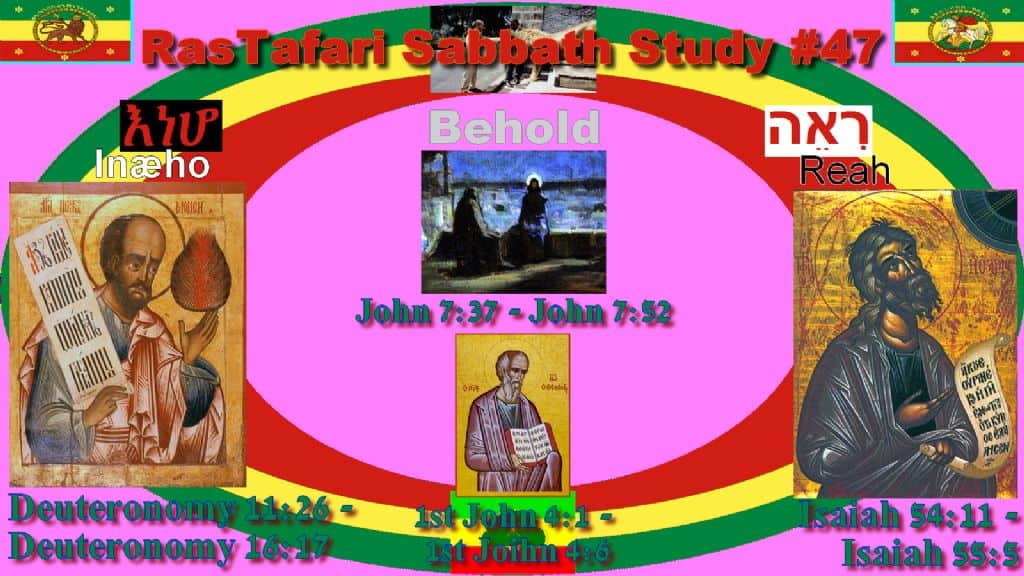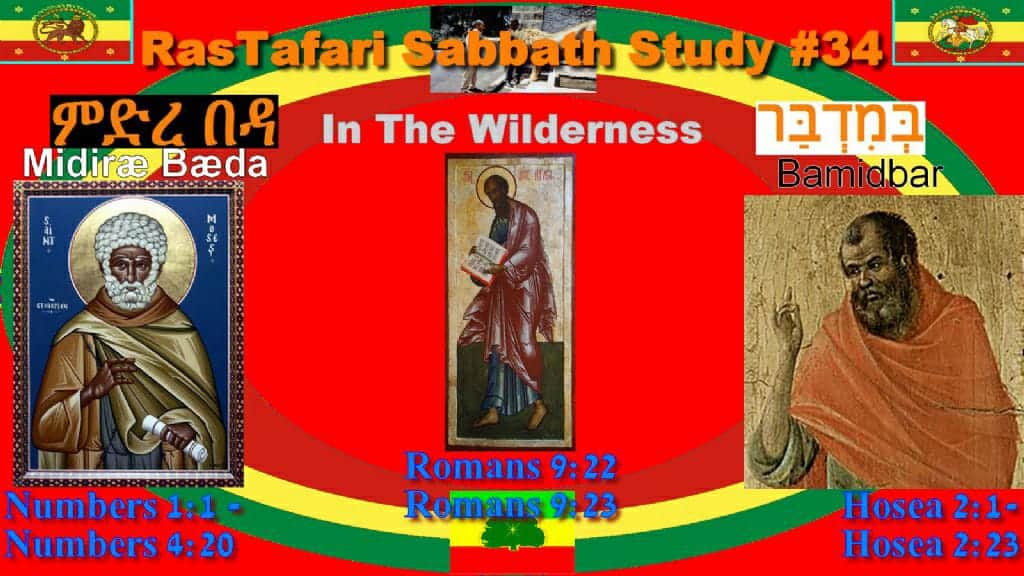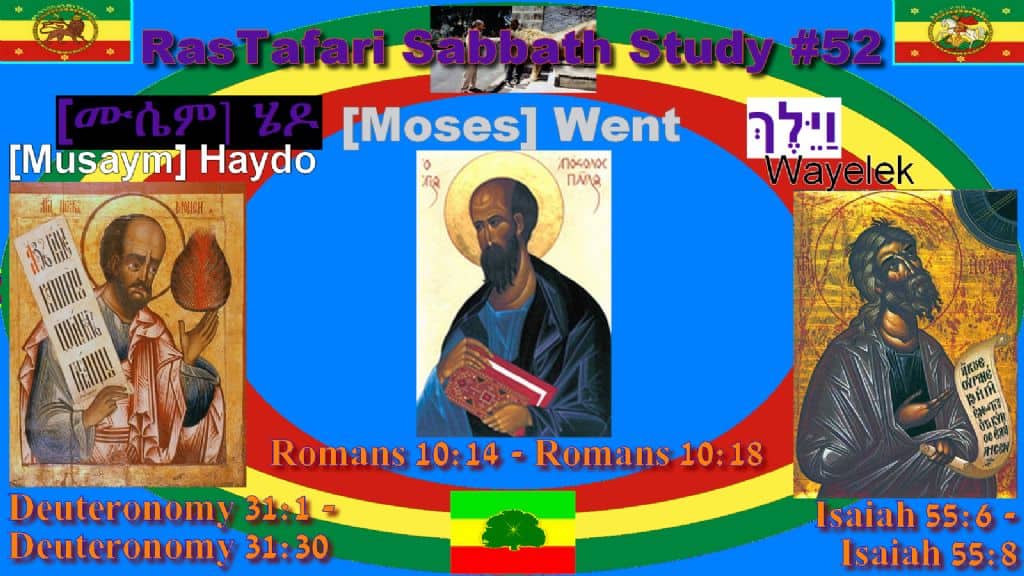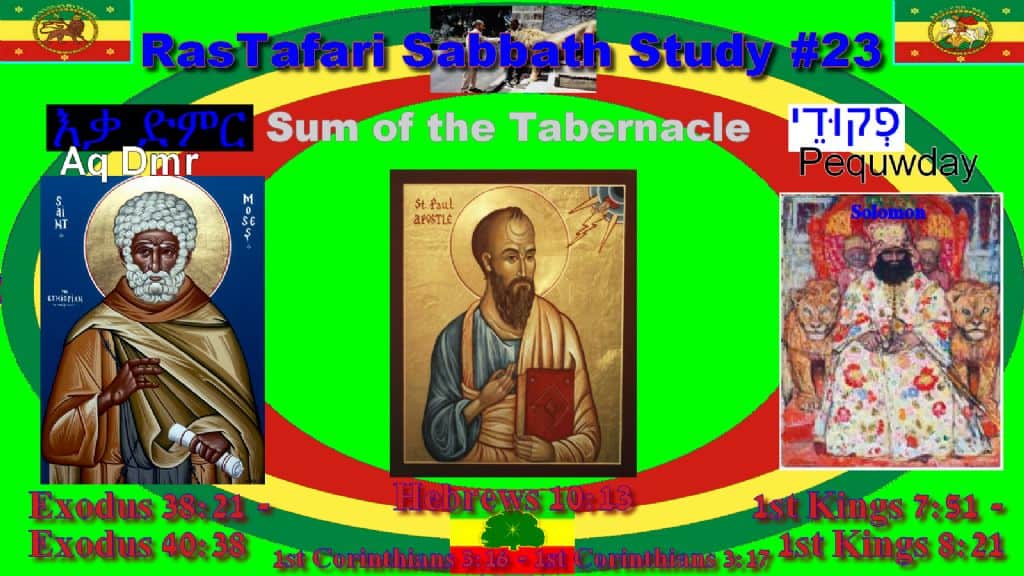This Week's Portion #20
Tetzaveh | תצוה | "You shall command" እዘዛቸው | Izzezachew
*For a PDF version of All the Torah Portions Schedule, click here to download!
2. Prophets Reading
Ezekiel 43:10-27
3. New Testament Reading
Hebrews 13:10-17
Portion Outline - TORAH
- Exodus 27:20 | The Oil for the Lamp
- Exodus 28:1 | Vestments for the Priesthood
- Exodus 28:6 | The Ephod
- Exodus 28:15 | The Breastplate
- Exodus 28:31 | Other Priestly Vestments
- Exodus 29:1 | The Ordination of the Priests
- Exodus 29:38 | The Daily Offerings
- Exodus 30:1 | The Altar of Incense
Portion Outline - PROPHETS
- Ezekiel 43:13 | The Altar
Portion Study Book Download & Summary
SHEMOT Hebrew Book of Exodus - Torah Portion Vol.2 (FREE PDF)
Tetzaveh is the twentieth reading from the Torah. Tetzaveh (תצוה) means “You shall command,” as in the first verse of the reading, which says, “You shall [command] the sons of Israel, that they bring you clear oil of beaten olives for the light, to make a lamp burn continually” (Exodus 27:20). This Torah portion continues to narrate the instructions for the construction of the Tabernacle, focusing particularly on the priesthood that was to serve in that sanctuary. The Israelites are commanded to make special garments for Aaron and his sons to wear while ministering as priests. After describing the priestly garments, the portion concludes with instructions for the ritual inauguration of Aaron and his sons into the priesthood.
Portion Commentary
A Story from the Talmud (b.Shabbat 31a)
Thought for the Week:
Out of all countries, the Holy One, blessed be He, chose the land Israel, and from the land of Israel he selected the Temple, and from the Temple, He selected only the Holy of Holies. Similarly, out of all the nations God selected Israel, and from Israel, He selected the tribe of Levi, and of the Tribe of Levi, He chose Aaron. (Exodus Rabbah 37:4)
Commentary:
You shall make holy garments for Aaron. (Exodus 28:2)
Once it happened, in the days of the Master, that a certain prominent Gentile, a high-ranking officer in the Roman government, was walking past a study hall in Jerusalem when he overheard the school children learning their Torah verses. The man stopped and listened for a little while. He heard the teacher reading from the Torah portion about the high priest’s special garments. He listened while the teacher read the words, "These are the garments which they shall make: a breastpiece and an ephod and a robe and a tunic of checkered work, a turban and a sash, and they shall make holy garments" (Exodus 28:4).
The Gentile did not know anything about the Bible or Judaism except what he had just heard. He stopped in and asked, "Who are these garments for?" The teacher told him, "For the high priest." The Gentile said to himself, "I will convert to Judaism so that I can become a high priest." He went to Rabbi Shammai, one of the leading sages of the Sanhedrin, and said, "I will allow you to make me into a proselyte on the condition that when I am Jewish you appoint me as high priest." Shammai was so infuriated by the man’s impertinence that he took a swing at him with a builder’s cubit and drove him away. Undeterred, the man went to Rabbi Hillel, Shammai's colleague and another leader of the Sanhedrin. He made Rabbi Hillel the same offer. Hillel accepted the terms and made him a proselyte. But he said to him, "Before a man can be made king, he has to learn about politics and government. Before you can be a high priest, you need to study the arts of governing over Israel from the Torah." The man studied Torah in preparation for becoming high priest, and as he studied, he realized that he did not qualify for the position. He could never be high priest. "Even the common Israelite cannot serve in the priesthood, but only the sons of Aaron; how much less am I eligible," he said. He went to Shammai and said, "If a stranger is not eligible to serve as high priest, why didn’t you just tell me that?" He went to Rabbi Hillel and said, "O gentle Hillel, may blessings rest on your head for bringing me under the wings of the Divine Presence of God. If not for you, I would not have become a believer."
This story illustrates the concept of "one body, many parts" that Paul discusses in 1 Corinthians 12. He points out that God gives different roles to different people. Not everyone has the same role. Just as in the human body, the foot is not the head and the eye is not the mouth, so too in the people of God, not everyone is the same. Not everyone is a teacher. Not everyone is Jewish. Not everyone is qualified to be a priest. But every part of the body is important.

